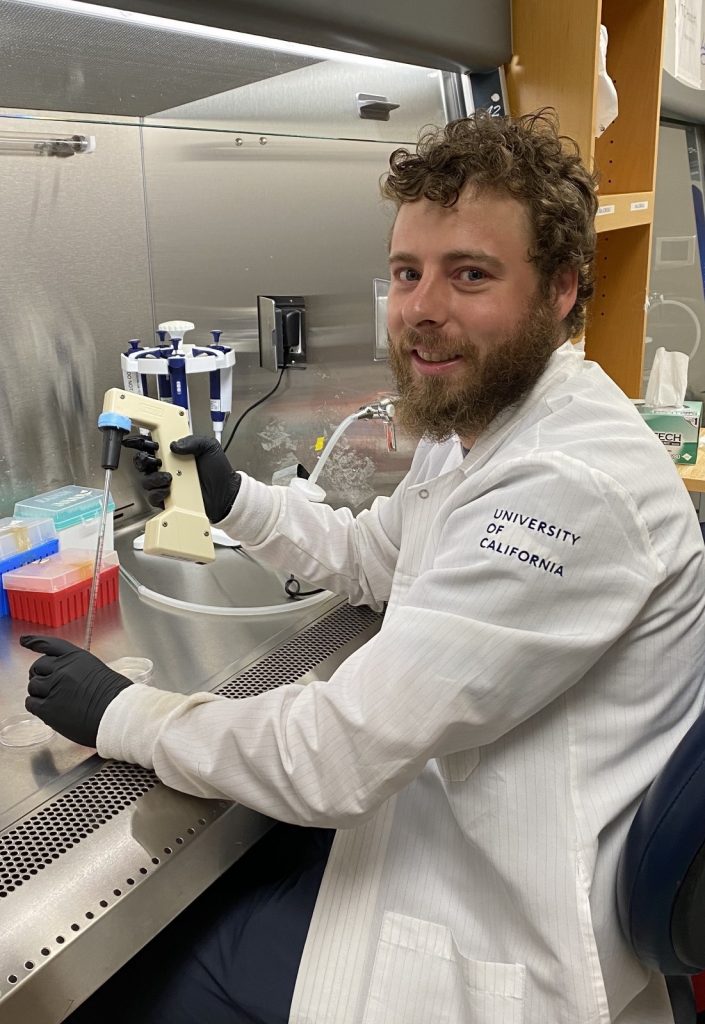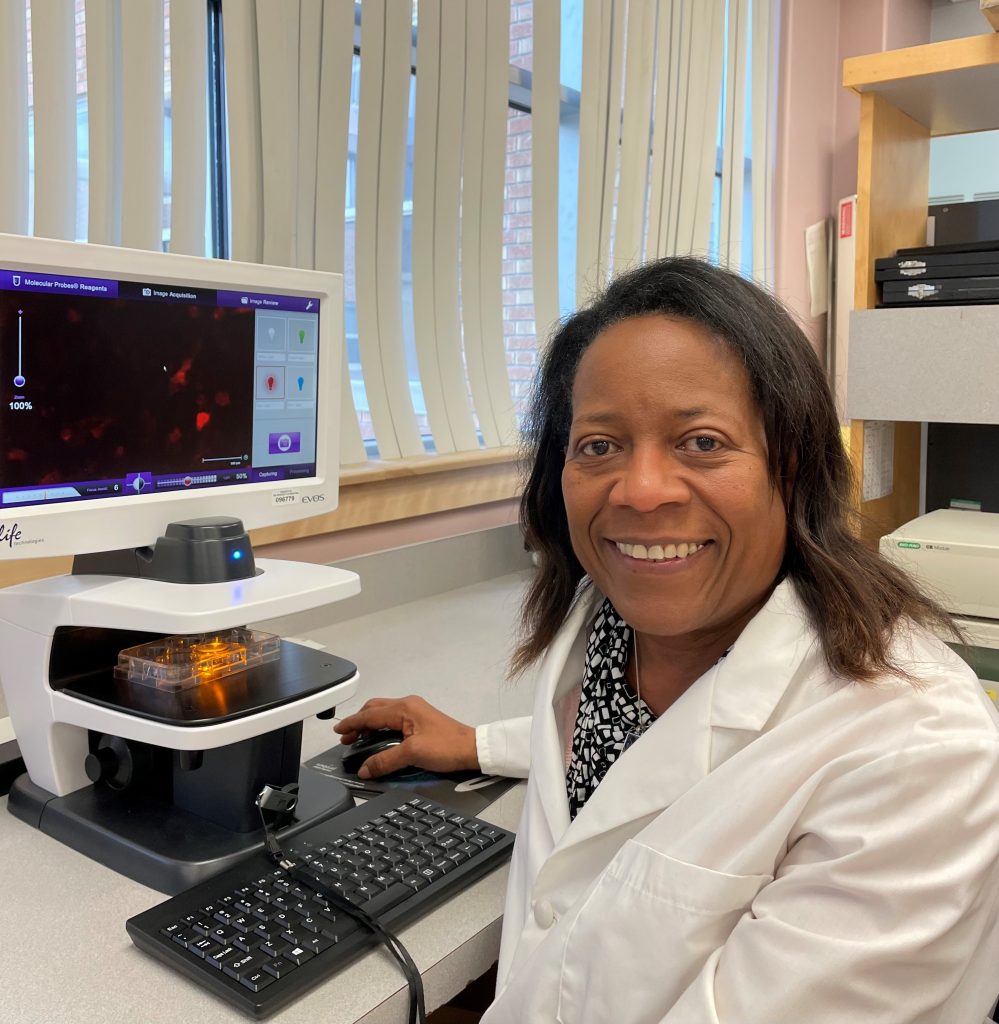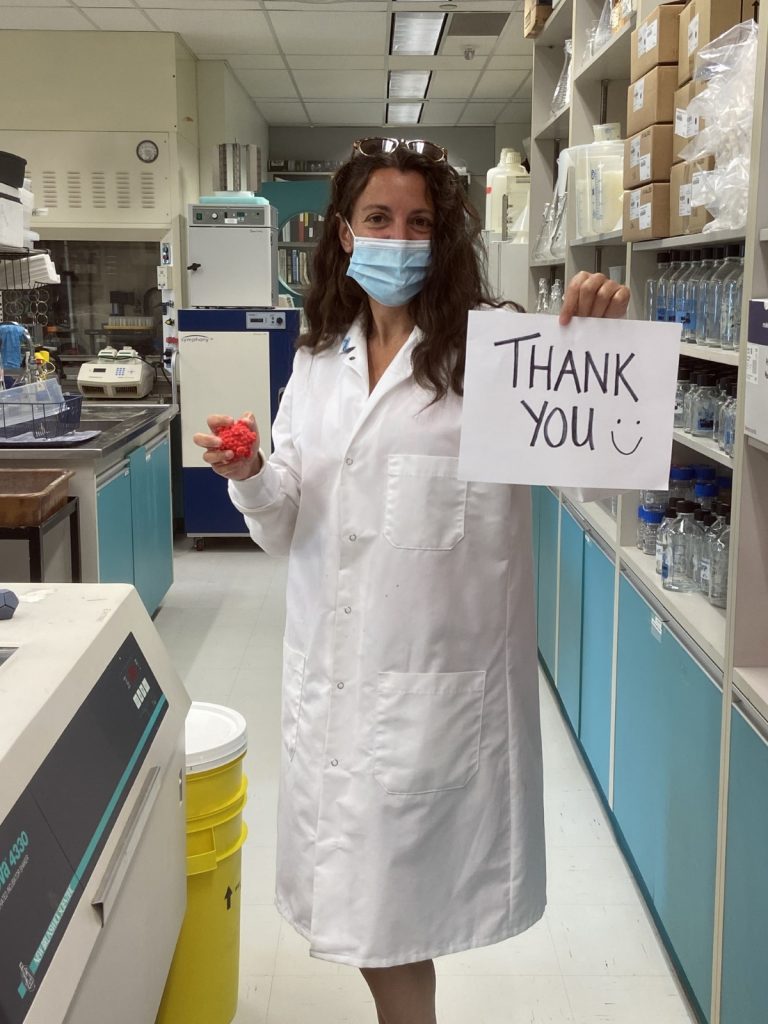Since the Cancer Research Society was founded, thousands of researchers have received a grant or bursary for a cancer research project.
For those researchers, these funds have huge impacts and generate positive repercussions for several years, both because of breakthroughs that are made over time and because of the careers that are propelled by them.
At the Society, we are proud to support these researchers who dedicate their daily lives to cancer research. With that in mind, we would like to introduce you to a few of them.

Postdoctoral Fellow University of California (San Francisco)
2021 recipient of the Scholarship for the Next Generation of Scientists
“We have to fund innovative and audacious research projects that will lead to breakthroughs if we want to revolutionize cancer treatment.”
According to Joshua, immunotherapy treatments have revolutionized cancer treatment, but these approaches still fail for several patients. Through his research he hopes to contribute to accelerating the development of next generation immunotherapy.

He is very grateful to receive this grant, which represents a real springboard for him. The grant will allow him to develop innovative tools to understand the immunology of cancer.
This inspiring researcher with huge ambitions for cancer research stated: “We are currently in an exceptionally passionate period for biological research because the rapidly developing technologies now provide an unprecedented, extraordinary multidimensional perspective on the ways that human cells and tissues interact.”

University of Manitoba (Manitoba)
Cancer Research Society 2021 Operating Grant, funded in partnership with the Canadian Institutes of Health Research – Institute of Cancer Research
Triple negative breast cancer (TNBC) is the type of breast cancer that carries the highest mortality rate; it is aggressive and unresponsive to current therapies.
Preliminary studies suggest that the prolactin inducible protein (PIP) could play a significant role in TNBC metastasis to the lung. As part of her research project, Yvonne hopes to better understand the mechanism of pulmonary metastases in this type of cancer.

The funding provided by the Cancer Research Society is essential to supporting projects like Yvonne’s.
“I hope that research like ours will allow us to develop new therapeutic strategies to improve life expectancy and quality of life for women diagnosed with TNBC, as well as those afflicted with other breast cancers that are aggressive and difficult to treat.”

Associate Professor University of British Columbia (British Columbia)
Cancer Research Society 2021 Operating Grant
The Society’s financial support is timely for Gregor Reid, whose research project is at a critical stage.
With the goal of reducing relapse in children with leukemia, the researcher and his team seek to identify relapse-driving cells early on. These cells are present at the time of the initial diagnosis, but in very low numbers.

The early results are very promising, but several key studies need to be done to make sure that we are identifying the relapse-driving leukemia cells in the patient samples.
The Society’s grant will make it possible to complete the experiments to confirm this.

Professor Queen’s University (Ontario)
Cancer Research Society 2021 Operating Grant, funded in partnership with the Helen Lenore Bailey Fund
Lung cancer is responsible for the largest number of cancer deaths as it is often diagnosed late and treatments are not effective.
A new form of therapy that uses the person’s immune system is becoming more and more effective. The problem is that it is very difficult to say which patients will respond to this treatment and who will not, as well as those for whom it may be toxic.

Christopher’s research project will help us develop a blood test to determine whether and how this therapy will work for the patient.
While the project focuses on lung cancer, it could be applicable to any cancer where immunotherapy is being used, particularly melanoma, but other forms of cancer as well.

Associate Professor University of Alberta (Alberta)
Cancer Research Society 2021 Operating Grant, funded in partnership with the Canadian Institutes of Health Research – Institute of Cancer Research
Initially, this researcher’s training is led her to a career in biochemistry and virology. However, she quickly became fascinated by the possibility of using her knowledge in both fields for developing cancer treatments.
“My laboratory explores viruses as a potential therapy for breast cancer.”
More specifically, Maya and her team focus on a virus called a reovirus which is already demonstrating activity in clinical trials, all in a safe manner for the patient. However, in order to work, we need to boost the potency of the virus and conduct additional tests.

The grant awarded to this researcher will allow her to delve deeper into the research project. Specifically, the fund has allowed her to hire a qualified graduate student to assist her and secure a technician position on the team. Together they will be able to conduct the necessary tests.
The Society receives hundreds of applications annually from researchers and clinicians in Canada, all seeking to obtain a grant for a cancer research project or a grant for the next generation of scientists. The list of the selected researchers for the 2021 competition is available on the Society’s website.
